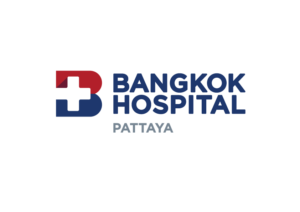by Bangkok Hospital Pattaya
Our specialized Heart Center addresses diverse heart conditions. Collaborating with government hospitals on surgeries, the “Heart for All” project, established since 2021, aims to increase the accessibility of surgical treatments and reduce waiting times for cardiac surgery for patients who were until they required surgery being treated in one of the collaborating government hospitals. Our “Value Based Health Care” strategy, launched in 2022, prioritizes patient needs, enhances clinical results, and optimizes costs for heart disease patients in the Eastern Region. We emphasize their health status and average home-to-Bangkok Pattaya hospital distance of 180-200 km to design service flow and collaboration between hospitals to deliver the best outcomes for patients.
We initiated the interdisciplinary ‘Enhanced Recovery After Cardiac Surgery’ program since 2022 throughout the entire patient journey across hospitals to improve outcomes, including patients’ needs, clinical results, and cost optimization. Our interdisciplinary ‘Heart team’ follows a patient-centric approach, enabled by value mapping and service design, to ensure comprehensive and coordinated care. Communication channels between referring hospitals have been streamlined to minimize travel for patients. We have a physician leader and coordinator to coordinate care between hospitals and we implemented Integrated Patient units. We have been using telemedicine to decrease costs and to improve access to care, particularly for elderly patients facing lengthy commutes. Rehabilitation, including pulmonary exercises and education on using an incentive spirometer, is delivered through video and telephone two weeks prior to surgery. Online communication via the LINE application provides a 24/7 health consulting platform, establishing a direct link between patients and the Bangkok Pattaya Hospital (BPH) team, for timely reporting and correction of any issues, ensuring continuous support for the patients. Each stage of the care cycle involves patient and family participation and cooperation, designed for their needs.
Results: This project served 535 cases of patients who underwent heart surgery. Initially, three hospitals participated in the network, which later expanded to seven hospitals, accommodating a total of 453 patients. The top two hospitals transferred 213 and 90 patients respectively, for surgical treatment, with an increasing trend observed annually. The survival rates at 1 month for the years 2021, 2022, and 2023 were 97.2%, 97.84%, and 97.3%
respectively. Similarly, the survival rates at 1 year for the same years were 98.7%, 99.07%, and 97.8%. A total of 337 patients participated in the survey. Return to usual activities or work within 3 months improved from 99% to 99.33% to 100% and from 30% to 89.77% to 94% respectively.
Perceived health status, as rated by the EuroQol Thermometer (scores ranging from 0 for worst health to 100 for best health). The proportion of patients indicating nearly the best health status after 3 months rose from 45% to 59.77% to 49%. Quality of life was assessed using the EuroQol
scale, the proportion of patients reporting the best quality of life after surgery increasing from 72.5% to 79.44% to 90%. Additionally, the proportion of patients achieving a post-surgery stay of 5 days or less increased from 53% in 2022 to 80% in 2023.

